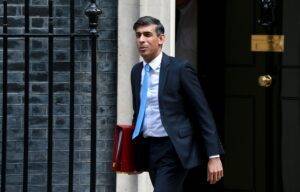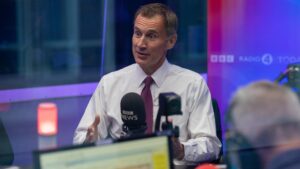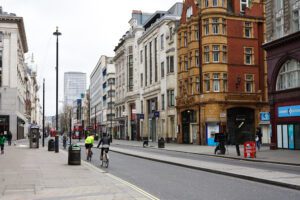Rishi Sunak shocked at runaway cost of HS2

<?xml encoding=”utf-8″ ?????????>
Rishi Sunak is “alarmed” by the escalating cost of HS2 amid claims that executives on the project have acted like “kids with the golden credit card”.
The prime minister has told allies that he is not prepared to watch the cost continue to escalate after being presented with figures suggesting that the overall price could pass £100 billion.
He is said to be particularly concerned by the apparent lack of cost controls, high salaries at the company overseeing the project and claims that the line had been deliberately “over-engineered”.
The prime minister is expected to delay a decision until the autumn statement in the face of a backlash from senior Conservatives.
Lord Hammond of Runnymede, a former chancellor, said that the project risked becoming a white elephant if it was not finished, and Patrick McLoughlin, a former transport secretary, said that scaling it back would be “completely wrong”.
It means that two former Tory prime ministers, three former chancellors and a former transport secretary are all opposed to curtailing the line.
Sunak is considering cancelling the northern leg of HS2 between Birmingham and Manchester and terminating the line at Old Oak Common in west London rather than in Euston to save money. He wants to reallocate savings to other regional transport projects including Northern Powerhouse Rail (NPR) between Manchester and Leeds.
It is understood that the prime minister may offer to fund a new underground rail station in Manchester as part of a package of transport investment in the north in a move designed to win the support of Andy Burnham, the Labour mayor.
Officials are also investigating a compromise that would mean the Birmingham to Manchester leg being delayed by up to seven years but with a commitment not to disband the project entirely.
This would help the government to balance the books before the next election as future costs would no longer fall into the financial period assessed by the Office for Budget Responsibility.
A source familiar with Sunak’s thinking said the prime minister believed that HS2’s northern leg and Euston terminus was a bad use of money and more could be achieved by doing it differently.
They said that the finances of the project were “far worse than anyone knows” and he was unwilling to “sit back and watch this balloon.”
It is understood that the cost of Phase 1, London to Birmingham, will “absolutely bust” the most pessimistic contingency plans, of £44.6 billion (at 2019 prices). When the project was announced the budget for its entirety was about £30 billion. It is now expected to cost more than £100 billion, even allowing for the fact that a line from Birmingham to Leeds has been scrapped.
One official said: “The whole project has been over-specced. It seems that the mantra of HS2 bosses has been to massively overspend all along to make it too big to kill . . . From the start they were like kids with the golden credit card.”
The project has been beset by delays and inflation. Ministers are particularly concerned that the project has been “over-engineered” to take trains that can run at speeds of up to 400km/h. HS2 trains will run at a maximum 360km/h, however, as part of efforts to reduce the cost of the rolling stock.
There is also concern over the management of the project by HS2 Ltd, set up by the government. More than 40 executives are paid over £150,000 and Mark Thurston, the chief executive, who is stepping down at the end of this month, is earning £640,000 a year.
Northern leaders are far keener on improving east-west links through the Northern Powerhouse scheme. A key part of the scheme, however, relies on about 13 miles of high-speed track from Manchester to near the airport.
Cancelling the section north of Birmingham would mean that several cities and large towns on the existing mainline — Stafford, Stoke-on-Trent, Macclesfield, Wilmslow and Stockport — are no longer bypassed.
The new US owners of Birmingham City FC have told Sunak he will damage trust in Britain if he limits the project. A letter from Tom Wagner, the chairman, was seen by the Financial Times.




